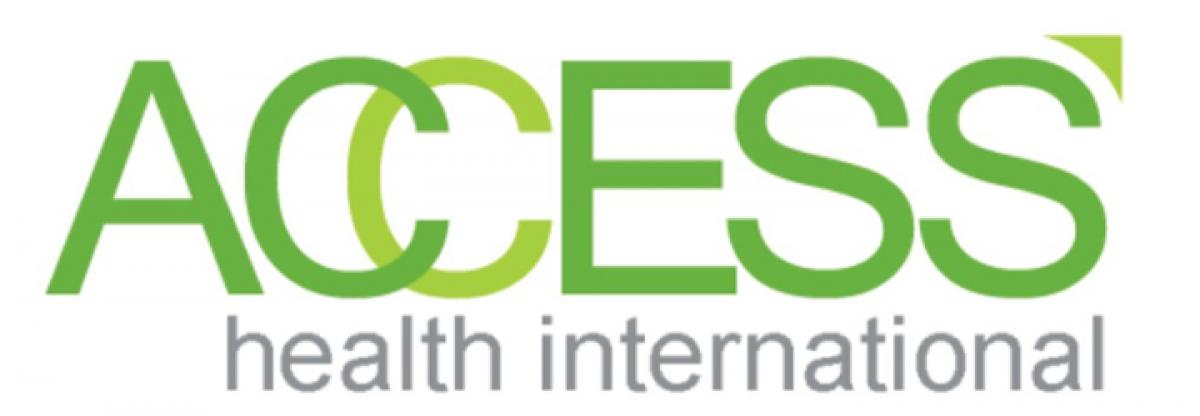Live
- Madhubani Saree: The epitome of traditional elegance and modern beauty
- Fire in TTD Forest in Tirumala
- SC dismisses rape survivor's plea seeking action against Kerala judge
- Chiranjeevi Engages with Russian Delegates on Creative Ventures in Hyderabad
- Has Allu Arjun's ‘Pushpa 2’ raked in Rs. 1000 Crore Pre-Release Business?
- Reports of spat with Netanyahu misleading: Germany
- 5.0-magnitude quake hits Alaska Peninsula
- AP assembly elections: Filing of nominations in full swing in the state
- Alaya F stuns in denim look, exudes boss babe energy
- Brillare Clinic Celebrates First Anniversary with Gratitude and Glamour
Just In
World Bank and University of Edinburgh Partner with ACCESS Health International to Launch First Course for Policymakers on Managing Markets for Health

7 Nov 2015 12:17 PM GMT

x
Highlights
World Bank and University of Edinburgh Partner with ACCESS Health International to Launch First Course for Policymakers on Managing Markets for Health
World Bank and University of Edinburgh Partner with ACCESS Health International to Launch First Course for Policymakers on Managing Markets for Health

Workshop explored how policymakers can steer markets to support public health outcomes.The answer to universal health coverage in mixed market health systems like in India lies in understanding and involving markets to shape health outcomes
ACCESSHealth helped launch the first face to face policy maker course on Managing Markets for Health, created by the World Bank in partnership with the University of Edinburgh. Over twenty state health policymakers, along with international representatives from Bangladesh, Ethiopia, Kenya, and Tanzania and key Indian development partners participated. The national representation was from health sector public officials in Karnataka, Tamil Nadu, Andhra Pradesh, Telangana, Gujarat, Goa, Tripura, Mizoram, Uttarakhand and Uttar Pradesh.
The course introduced key policy levers and tools that policymakers can use to guide healthcare markets toward improved health outcomes for the public. The course helped participants understand how mixed markets work in the healthcare sector and how to influence them.
The course was inaugurated by Mr. CK Mishra, Director of the National Health Mission and Additional Secretary, Ministry of Health and Family Welfare. The course was taught by eminent global faculty from the World Bank, the University of Edinburgh, O’Hanlon Consulting, the University of California in San Francisco, the University of Michigan, and the University of Delhi. The course included content about the role of private players in the healthcare sector, how health markets operate, and policy approaches to shift the operation of health markets toward the achievement of universal health coverage and better public health outcomes.
“The market for provision of healthcare services, much like any other consumer product, often finds itself influenced by open market competition,” explained Siddhartha Bhattacharya, Country Director, ACCESS Health India. “Yet, in the interest of public benefit, policymakers seek to influence healthcare costs, considering the essential nature of these products. The growing frequency of regulatory reforms and contracting with nongovernmental organizations, as well as the increasing popularity of public private partnerships, illustrate this trend,” said Mr. Bhattacharya.
According to Rohini Kalvakuntla, who leads the public private partnership work at ACCESS Health International, “India has a healthcare system in which public and private health systems coexist. Over sixty percent of health services are provided by the private sector, with varying degrees in primary care and hospital based care. India also has very high out of pocket expenditures on healthcare services, essential drugs, and diagnostics. In such a scenario, governments need to think creatively to engage, manage, and regulate the private sector so as to support public health outcomes.”
The curriculum of the course addressed the challenges of implementing policies to elicit changes in how markets operate so that they contribute to sustainable health and equity goals. The course introduced a new market analytics tool, external and indirect policy tools, and policy processes used to shift the operation of health markets in a desired direction. The course guided participants as they applied the new framework and its concepts to examples from the health systems of both developed and developing countries.

Next Story
More Stories
ADVERTISEMENT
© 2024 Hyderabad Media House Limited/The Hans India. All rights reserved. Powered by hocalwire.com






